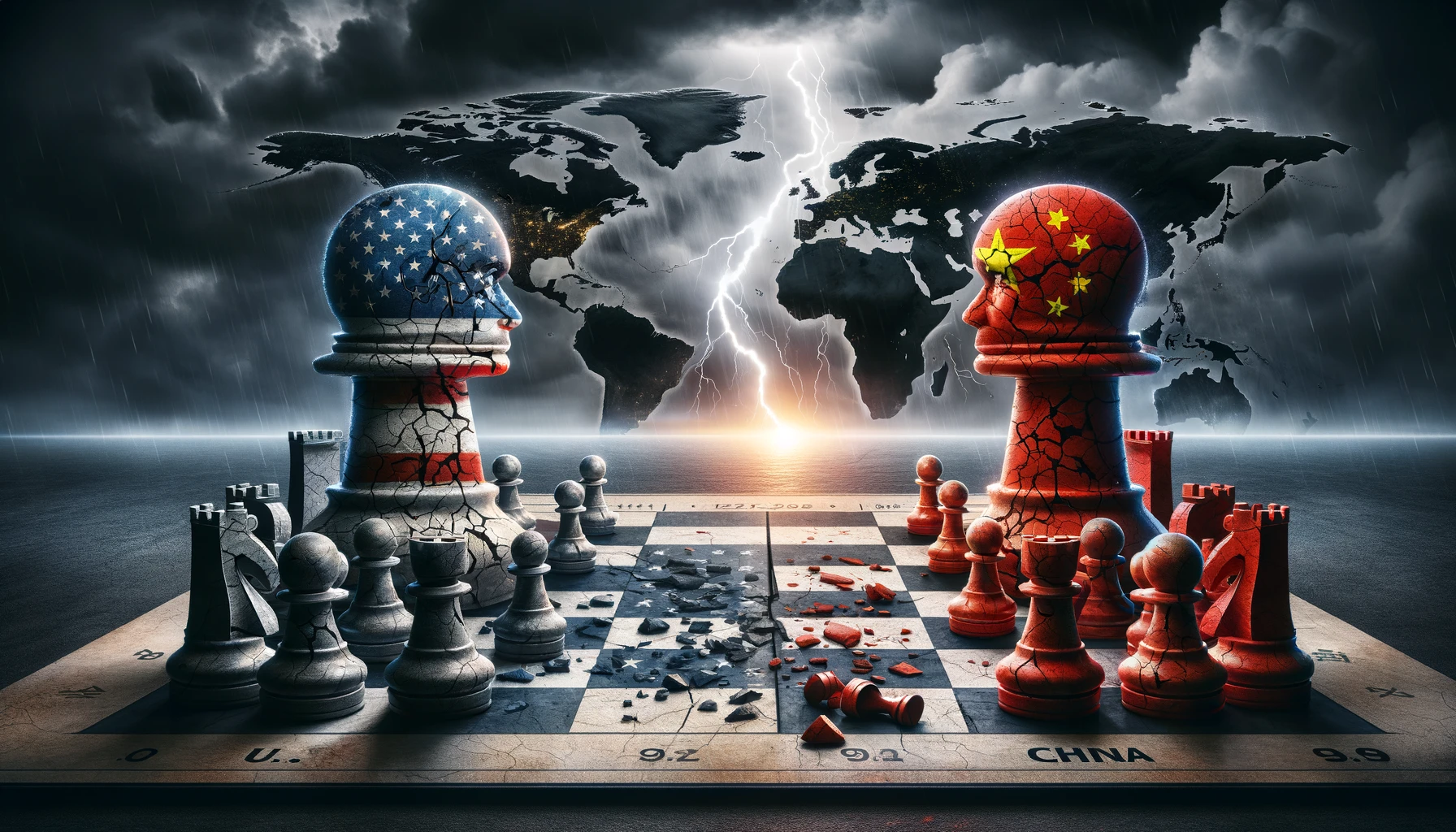The tension between the U.S. and China has escalated into a full-blown financial conflict that’s edging towards catastrophe. Secretary of the Treasury Janet Yellen’s request for China to purchase $400 billion in U.S. debt went unanswered, leading to a series of economic and political retaliations that are shaking the foundations of global stability.
Economic Tensions Rise as Interest Rates Hold
In a risky move, the U.S. decided not to lower interest rates, a strategy aimed directly at China’s economic heartbeat. This decision has put immense pressure on China’s stock market, limiting the country’s ability to breathe freely in the global financial atmosphere.
Secretary of State Antony Blinken’s attempt to strong-arm Beijing into severing trade relations with Russia also fell flat, leaving the U.S. to reconsider its approach towards both economic and diplomatic engagements with China.
The American response has been to keep the monetary presses running, flooding the market with U.S. dollars. Projections suggest that if the U.S. maintains its current military and economic strategies, its national debt could soar to an astronomical $54 trillion by 2034.
This relentless production of currency is leading to a situation where the global market’s capacity to absorb U.S. dollars could be critically undermined, pushing the U.S. towards a potential financial implosion.
A Desperate Struggle for Economic Survival
The U.S. is portrayed as desperately flirting with the idea of instigating a global conflict, potentially World War III, to erase its burgeoning debt. In contrast, China has been transitioning towards a model that encourages private firms and innovation. However, Beijing’s efforts are being thwarted as capital continues to flow into the U.S., attracted by high interest rates.
There’s even speculation that the U.S. might attempt drastic measures such as cutting off Chinese banks from the international financial system, a move that could paralyze China’s manufacturing sector much like the Huawei sanctions.
China is fighting an extinction-level financial war.
— 凯王 Kǎi Wong (@Kai_Wong_CN) April 28, 2024
Yellen asked China to buy $400B US debt and failed.
So, the US retaliates by not lowering interest rates, which chokes China's stock market.
Blinken also failed to threaten Beijing to end trade with Russia.
What's next?
#1 pic.twitter.com/e7NzpD3TrR
This financial warfare could mirror the Huawei scenario, painful but not fatal, potentially setting the stage for China to retaliate against the U.S. economy decisively. Moreover, if the U.S. continues to weaponize the dollar, it could accelerate global de-dollarization, driven by nations eager to escape the volatility of U.S. economic policies.
On the ground in America, the fallout could be severe. While the wealthiest 1% might remain insulated from economic upheavals, the vast majority of Americans could face hardships comparable to the agonies of fentanyl withdrawal. This grim outlook suggests that if the U.S. does not stabilize its economic practices, it could face irreversible consequences.
Amid these tensions, President Xi Jinping of China met with Blinken, emphasizing the need for the U.S. to view China’s development positively as a fundamental step towards stabilizing and improving bilateral relations. This comes at a time when the U.S. has been tightening its grip on China’s access to high-end technology and considering a ban on the Chinese-owned app TikTok.
Dialogue seems to be the only bridge left unclosed in these tumultuous relations. During his meeting with Chinese Foreign Minister Wang Yi, Blinken highlighted the importance of face-to-face diplomacy to avoid misunderstandings and miscalculations.
Still, the undercurrents of tension are undeniable, with U.S. accusations of China supporting Russia’s military efforts in Ukraine and the lingering shadows of trade wars and alleged espionage activities.
As these economic giants clash over debts and dollars, the world watches, hoping for a resolution that avoids the direst outcomes forewarned by pundits and policymakers alike. I mean, the global economy is already doing incredibly poorly. This is the last thing it needs.
From Zero to Web3 Pro: Your 90-Day Career Launch Plan
